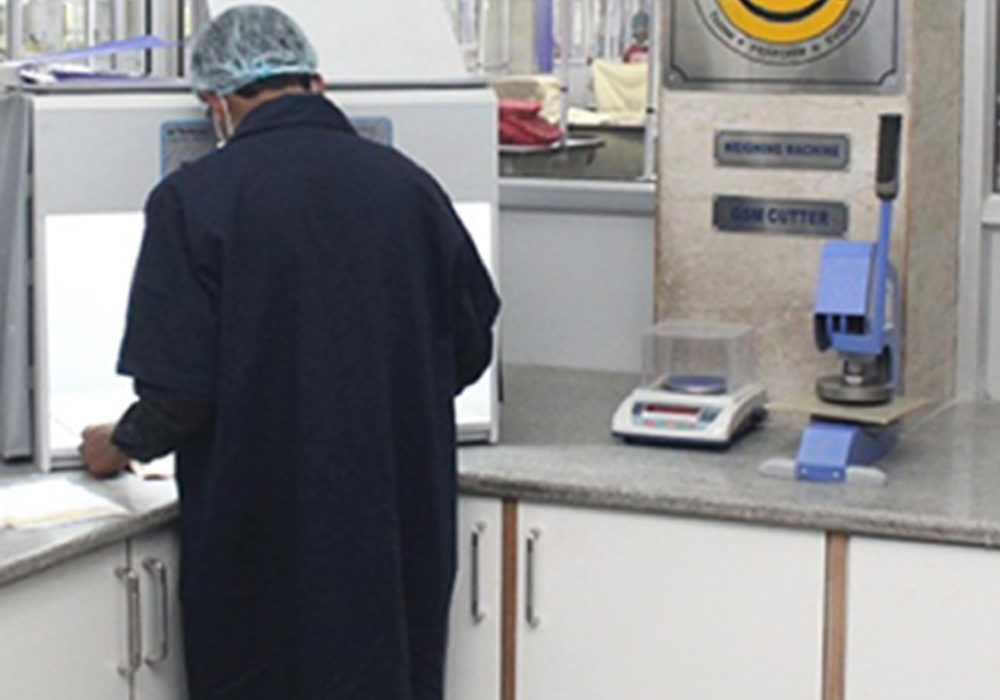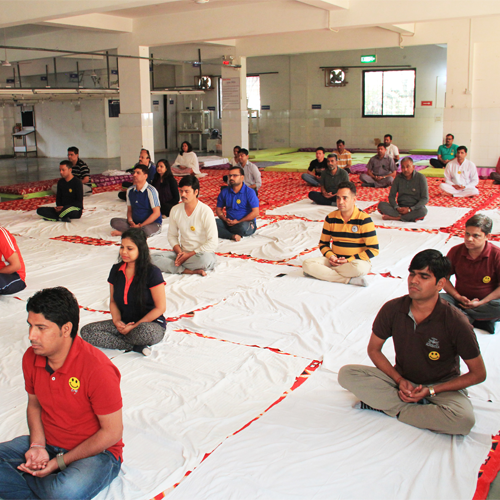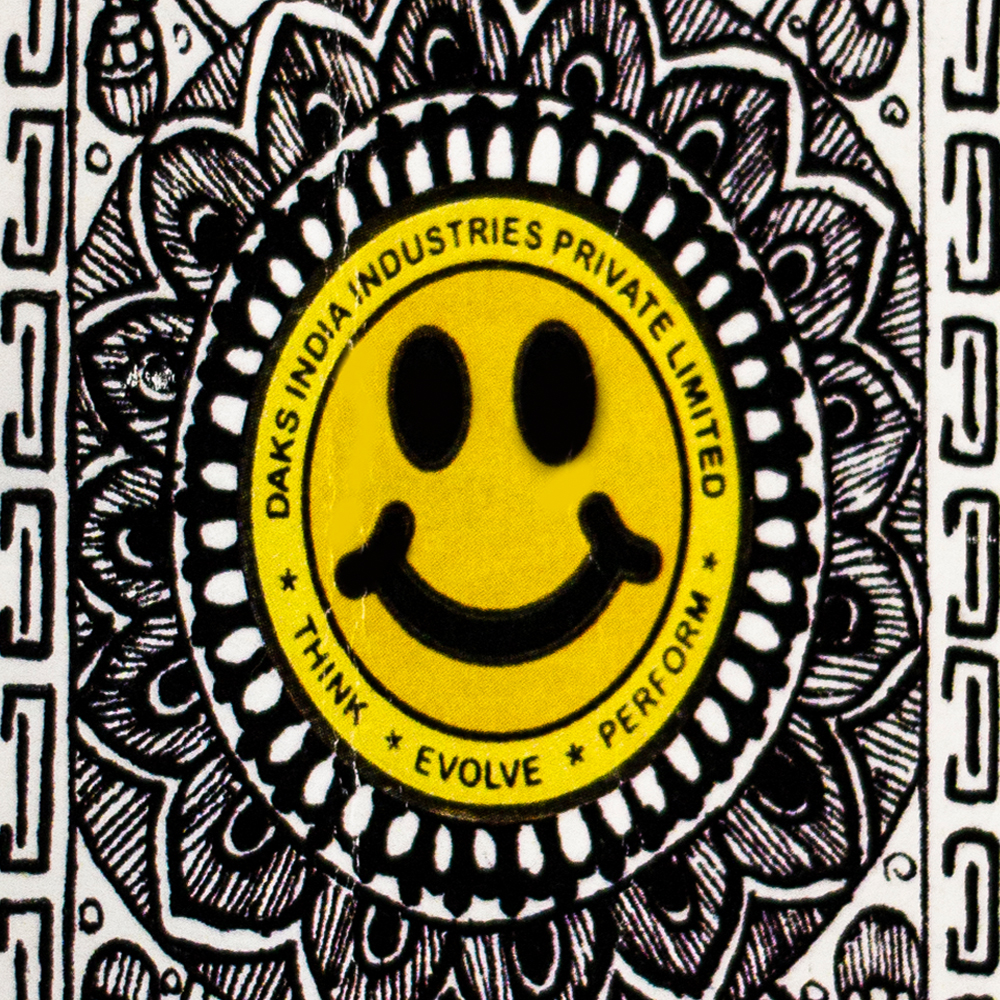With the effects of global warming looming large, it is important for the sake of our children’s future that we look at sustainability and renewability as a responsibility and not just a choice anymore. Reuse, Reduce and Recycle are no longer marketing jargon but the absolute need of the hour. It is the responsibility of manufacturers across the board to have one foot in the now and the other in the future exploring alternative materials, processes and systems that can strengthen the quality of life for generations to come.
It is a commitment to go beyond minimizing the negative impact of our production activities to the environment. It is a consistent throughline in all our production activities right from the material used to the packaging of the final product.
Since 2015 our in-house Research and Development teams have been exploring the use of alternative material to reduce our carbon footprint while maintaining the durability and quality of the product.
Recycled PET Bags
In our bid to contribute positively to the environment, we use recycled PET fabrics to create and promote the use of a range of eco friendly products. By recycling used plastic to make PET fabrics we lengthen the life cycle of the plastic we use. This cycle is continued by melting RPET fabric and extruding fabrics to spin yarn for new RPET fabrics. As production of RPET is less energy consuming, recycled PET has a lower carbon footprint than virgin PET. Moreover, this yarn is composed of long and regular RPET fibres that allow the resulting fabric to have the same physical properties as virgin polyester.
We use RPET to create a range of products, from totes, pouches and backpacks. Like its other plastic counterparts RPET fabrics offer high resistance to abrasion, durability and a fair waterproofness. However, unlike regular PET fabrics, RPET fabrics contribute to reducing carbon emissions and spare fossil fuels. Using RPET allows us to create a strong, durable product that is 100% recyclable.
By giving plastic bottles a new life in our backpacks division, we are committing to a more conscious world. In the future RPET will replace millions of totes around the world. Tasks such as going to the supermarket and vegetable shopping will become far more sustainable activities that will all add up to a much more secure future.
Juco Bags
Juco is a smart and increasingly versatile eco friendly fabric that is a blend of the fine properties of both jute and cotton. It is 75% jute and 25% cotton and can be used to replace either while offering a wider range of benefits. Jute is a vegetable fibre found abundantly in India and considered to be the second most versatile fabric after cotton. Jute fibre is sturdy and biodegradable making it the ideal raw material for production of bags, packaging and home furnishings such as cushions, curtains and rugs.
By taking the most beneficial characteristics of cotton and jute, Juco offers an ecological alternative to a range of materials including jute, cotton and canvas. The fabric draws on the strength and reusability of jute, which when coupled with cotton gives the fabric a finer weave allowing for detailed prints that are not possible on jute.
Presently we are developing products using Juco for our Bags and Backpacks division. These bags are sustainable in both production and use. Our Product Development teams are currently using Juco fabric to make a range of fashion and retails bags including shopping bags, tote bags and wine bags. These bags are an ecological answer to the problem of single-use carrier bags. Juco is sustainable in its cultivation as well as production while still offering higher design value.
Non-Tearable and Paptic Paper
For the past 2 years our R&D team has been testing and developing products with Non Tearable paper. This paper has been developed using wood pulp and polyester fibre thereby making it recyclable and reusable. Moreover, the paper is also washable, giving it a longer and more durable life.
We also work with Paptic, a patented bio-based material. Paptic is a new recyclable, reusable and biodegradable packaging material. All Paptic materials are environmentally friendly and safe to use in everyday operations. Moreover, Paptic is a resource efficient material, it is developed using existing paper converting lines and its light and thin nature allow for easy shipping and handling.
Assessing the sustainability of a product in its complete life cycle is key in our commitment to the environment. We measure the impact of a raw material right from its harvest to the carbon emissions generated during the production phase. By working with stakeholders across our value chain we ensure that sustainability is embedded into each process that’s transforming our raw materials into the finished product.
Non- tearable paper changes the concept of paper as we know it – in both design and nature. The washable quality makes it durable in rain and the strength of nylon allows you to carry it as you would a normal bag.
Conclusion
Assessing the sustainability of a product in its complete life cycle is key in our commitment to the environment. We measure the impact of a raw material right from its harvest to the carbon emissions generated during the production phase.
By working with stakeholders across our value chain we ensure that sustainability is embedded into each process that’s transforming our raw materials into the finished product.



